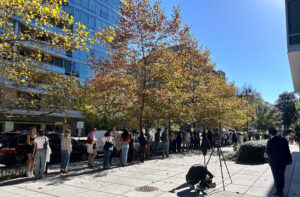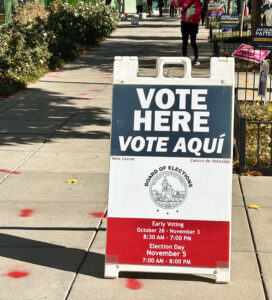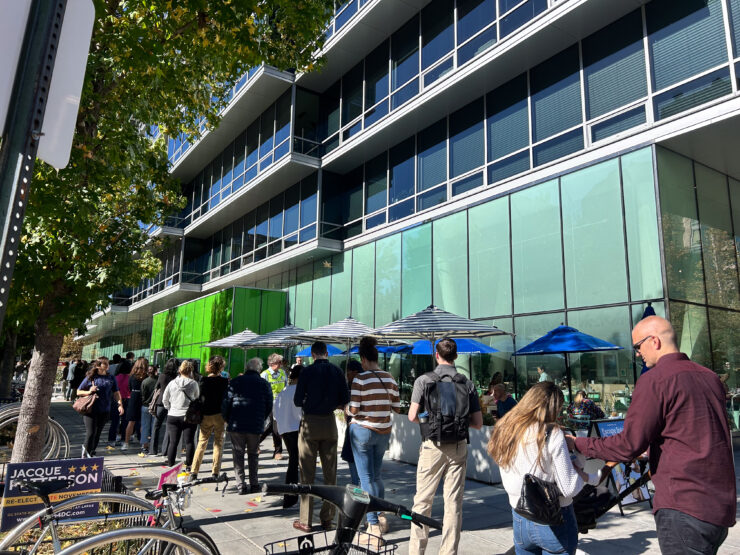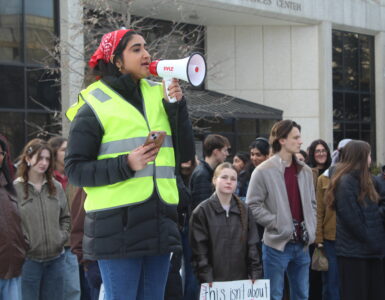Of the roughly 160 million people who will vote in the 2024 presidential election, about 8 million will be first-time voters.
Dozens of voters wrapped around the West End Neighborhood Library earlier this afternoon, many of whom were young voters casting their ballots for the first time ever in the 2024 presidential election.
“It’s a little nerve-wracking,” Nicholas Fabian, an undergraduate student at George Washington University, said. “There’s no pressure to vote, but it’s a meaningful experience.”
According to the U.S. Census Bureau, roughly 160 million people will vote in the 2024 presidential election. About 8 million of those voters will be first-time voters.

Originally from Connecticut, Fabian voted for the first time at the neighborhood library. He said he registered to vote in D.C. because it is a “simpler” process than voting by absentee ballot.
“Something about being in-person to vote, instead of mailing in your ballot…there’s something very patriotic about it,” Fabian said.
Sophia Pan, another undergraduate student at G.W., also voted in her first election. She said the voting process is a little worrisome because she is fully “immersed” now.
“It gets more real,” she said. “It’s a lot more important when you’re actually voting, instead of just watching it happen around you.”
Both students cast their vote for Vice President Kamala Harris, stating they agree with her policies more than former President Donald Trump.
Fabian described Trump as a “complete threat to our democracy,” and Harris would be better for the position after the Capitol attack on January 6, 2021.
“I just think Kamala Harris’s policies will benefit the middle class much better and more effectively than Donald Trump’s policies,” he said.
As for Pan, she said Harris’s positions on significant issues such as abortion and environmental issues make her more qualified for the position.

Olivia Morris, a graduate student at G.W., said she came out to vote because she is passionate about politics. Identifying as a “pretty dedicated conservative,” she felt it was her “civic duty and honor” to be able to vote.
“I love my country, and I love thinking about these deeper questions,” she said. “There’s a lot of moral weight to a lot of things surrounding this election.”
She said she voted for Trump because of his international policies, such as imposing tariffs on other countries “to support growth with the United States.” This is her third time voting for the former president, and she “supports everything he stands for.”
While many individuals have clear stances on who they support, some potential voters have previously voiced their concerns for both candidates. Some Pro-Palestinian voters recently said they will not vote for Harris unless the Democratic nominee commits to stop sending weapons to Israel.
Avery Archer, a West End resident, felt conflicted on the issue because of his pro-Palestinian beliefs toward the Israel-Hamas war. Nevertheless, he decided to vote for Harris because she seemed more “persuasive” in taking a stance on the conflict.
“Even though she isn’t where I want to be on [the war,] I think she’s more receptive to pressure,” Archer said.
Fabian said it is important for other undecided voters to still vote in this “historic election.”
“Even if neither of the candidates really represent your beliefs, there’s no reason why you shouldn’t do it,” he said.















Add comment